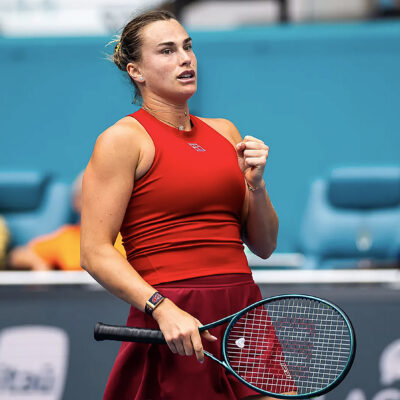Roger Federer could replace Boris Becker as an all-star Wimbledon commentator, London’s Daily Telegraph reported on Saturday.
The Swiss icon who retired with a knee injury last autumn with 20 Grand Slam singles titles, could be in talks with BBC bosses, the broadsheet reported,
Becker was for a decade the go-to talking head during blanket overage of the grass-court fortnight.
But the German’s release in December from a London prison after serving 10 months of a fraudulent bankruptcy sentence, comes with a provision which is unlikely to allow him back into the country for several years.
Federer could possibly work in tandem with the prestige British broadcaster and the more downmarket ESPN, doubling up – but without the manic, hyped-up style – of New Yorker John McEnroe.
The salary split would likely be a necessity for accountants, with Federer’s past appearance fees hovering in the millions for even one night of exhibition tennis.
The opportunity to bring Federer back to Wimbledon for TV work would be a significant boost to the tournament
The last time Roger Federer visited Wimbledon – in late November – he was denied entry by an overzealous security guard who wanted to see his membership card.
The All England Club however, now finds themselves courting Federer for a commentary role at the tournament he won eight times.
The Telegraph can reveal that talks are at an advanced stage to bring Federer into a revamped BBC production, which will also involve different presenters and a new studio that is being constructed on top of the old broadcasting centre.
Federer hinted at his possible availability in September, on the eve of the Laver Cup event in London that saw him retire from professional tennis.
“Commentating the odd match or giving back in this way, I guess I could imagine it,” he told reporters. “Sometimes you watch matches because of the commentary and less about the match itself.”
The timing is perfect for a BBC production that is about to reinvent itself – but hopefully in a less clunky way than when it launched the ill-fated Wimbledon 2day show in front of a Top Gear-style studio audience, and triggered such a backlash that the concept was abandoned a week later.
This year, the coverage will be missing Sue Barker – the evergreen presenter who retired last summer after 22 years in the anchor’s chair – and Boris Becker, who is not expected to be re-engaged after being released from prison in December.
In their absence, the main presenting duties are expected to be shared between Clare Balding and Isa Guha, who made their names in horse-racing and cricket respectively.
Federer’s presence as a pundit is sure to add charisma and gravitas to a production that depends heavily on John McEnroe’s verbal fluency.
Since his retirement, Federer has appeared on The Daily Show with Trevor Noah – which is where he revealed his story about the Wimbledon security guard – and attended Paris Fashion Week with his wife Mirka.
Other content posted on his Instagram account included a video of him skiing – accompanied by the caption
.“It’s been 15 years, it’s so good to be back on the slopes” – and a film about the art installation project he modelled for in Venice, where he had to strip down to his underwear before being encased in plaster.
Federer is not expected to spend Wimbledon fortnight working frantically in the manner of McEnroe, who splits himself between BBC TV, BBC radio and ESPN’s coverage for the American market. He prefers a more serene existence.
Doubling up between BBC and ESPN is still a possibility for Federer, but would more likely involve some kind of alternating deal: a daily commentary match for one network, followed by a punditry appearance on the sofa on the other, and then switching around 24 hours later.
Two different employers would help to cover Federer’s costs, which – for a man who used to command at least $1m per day for an exhibition event – are likely to be substantial.
BBC documents show that for the last two years they have paid McEnroe a salary of between £180,000 and £184,999, but they have found it difficult to retain other overseas stars such as Andy Roddick, Lleyton Hewitt and Jim Courier, who have all made appearances on the BBC’s Wimbledon coverage without becoming regulars.
Federer received a rapturous standing ovation at Wimbledon last year
For comparison, Balding’s salary was listed at between £205,000 and £209,999, and Guha’s at between £155,000 and £159,999 – although they both work on other sports as well.
Becker was never paid enough to be included among the biennial disclosure of the BBC’s highest-paid stars, who must earn at least £150,000 to be included.
The All England Club co-operate closely with the BBC and other rights-holders on their broadcasts, usually providing the production for the live match coverage in-house.
It would certainly be in the tournament’s interest to make use of the most popular champion in Wimbledon history, whose arrival on Centre Court during last summer’s 100th anniversary ceremony prompted a rapturous standing ovation.
Federer also enjoyed a special rapport with Barker, who famously reduced him to tears when she interviewed him after his maiden Wimbledon title in 2003. “I hope the club will do a tribute for him next year,” Barker told the Telegraph in September. “If I were in the job I would certainly be pushing to celebrate his career at Wimbledon.”
Main photo:- Roger Federer appeared to a rapturous ovation at the 100 years centenary event at Wimbledon 2022





